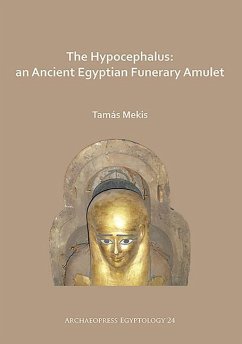
The Decline and Fall of the Ptolemies
Ptolemaic Egypt 146-30 BC
Versandkostenfrei!
Versandfertig in über 4 Wochen
29,99 €
inkl. MwSt.

PAYBACK Punkte
15 °P sammeln!
Explores the turbulent reign of Ptolemy VIII, his successors, and Egypt's decline under Roman influence. The death of Ptolemy VI brought his younger brother Ptolemy VIII to the kingship. This was the start of a prolonged, if intermittent, turbulent period of family strife, punctuated by rebellions, plots and wars. One king, Ptolemy VII, was murdered, Ptolemy VIII's two simultaneous wives plotted and rebelled, and when he died one of these, Kleopatra III, was his effective successor. Ptolemy VIII was in fact not a bad king in some ways, and encouraged the exploitation of the discovery of the mo...
Explores the turbulent reign of Ptolemy VIII, his successors, and Egypt's decline under Roman influence. The death of Ptolemy VI brought his younger brother Ptolemy VIII to the kingship. This was the start of a prolonged, if intermittent, turbulent period of family strife, punctuated by rebellions, plots and wars. One king, Ptolemy VII, was murdered, Ptolemy VIII's two simultaneous wives plotted and rebelled, and when he died one of these, Kleopatra III, was his effective successor. Ptolemy VIII was in fact not a bad king in some ways, and encouraged the exploitation of the discovery of the monsoon climate of the Indian Ocean to develop trade with India, as well as using his (much reduced) navy to maintain contact with the lands of the Mediterranean. Kleopatra III made a renewed effort to reconquer Palestine, but failed (Eighth Syrian War). From the death of Ptolemy IX in 80 BC there were two overriding problems. Ptolemy IX was the last legitimate Ptolemy, and the succession was constantly in dispute from then on. And looming over all was the rising power of Rome. This had been largely absent from the eastern Mediterranean until the Mithradatic wars brought its power repeatedly into the East. Egypt gradually became drawn into the republic's orbit, mainly as a source of cash to fund its wars and the greed of the Roman aristocracy until, choosing the side of Mark Antony, the final Ptolemy, Kleopatra VII, went down to defeat before Octavian's forces.












